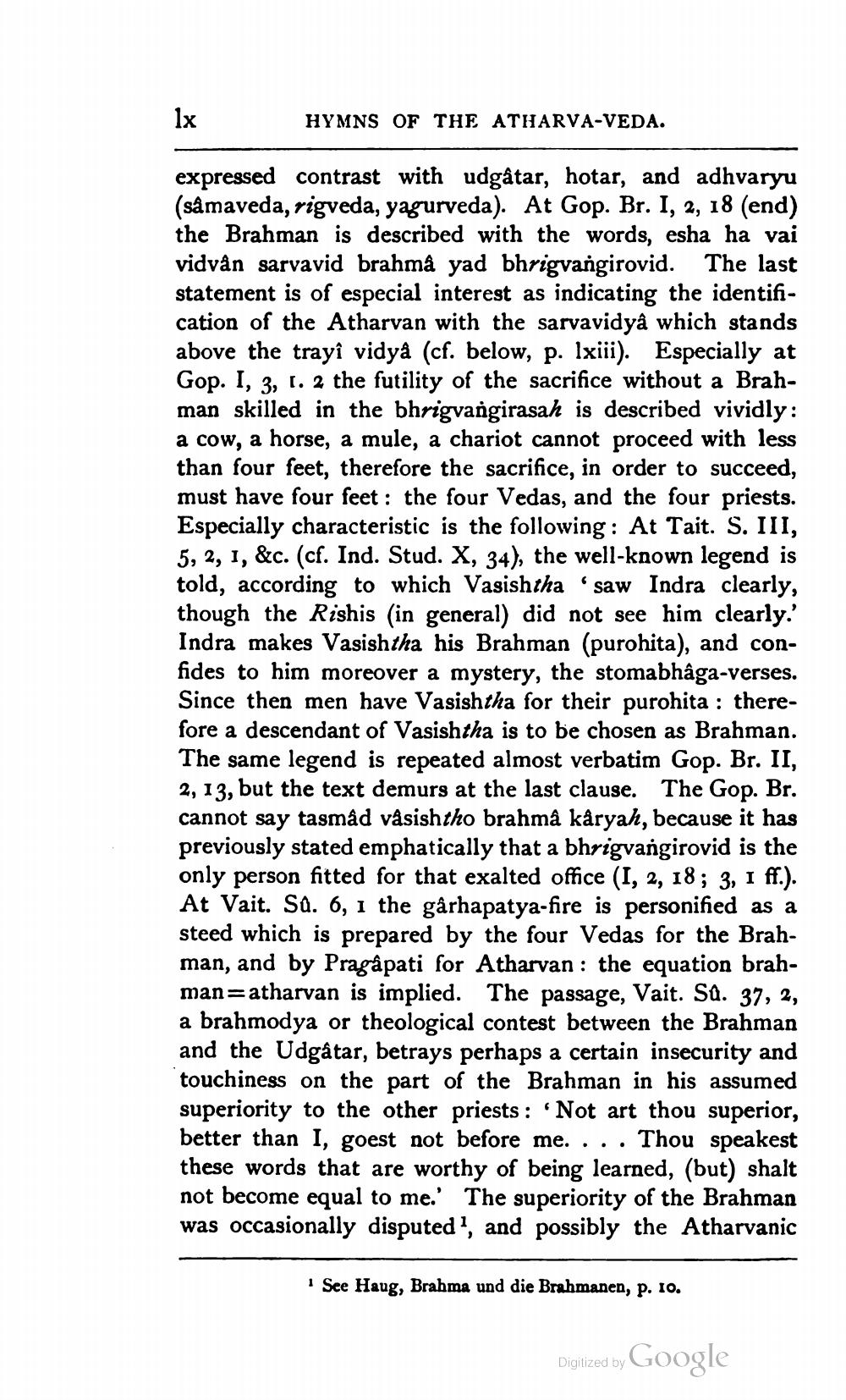________________
1x
HYMNS OF THE ATHARVA-VEDA.
expressed contrast with udgâtar, hotar, and adhvaryu (sâmaveda, rigveda, yagurveda). At Gop. Br. I, 2, 18 (end) the Brahman is described with the words, esha ha vai vidvân sarvavid brahmâ yad bhrigvangirovid. The last statement is of especial interest as indicating the identification of the Atharvan with the sarvavidyâ which stands above the trayî vidyâ (cf. below, p. lxiii). Especially at Gop. I, 3, 1. 2 the futility of the sacrifice without a Brahman skilled in the bhrigvangirasah is described vividly: a cow, a horse, a mule, a chariot cannot proceed with less than four feet, therefore the sacrifice, in order to succeed, must have four feet: the four Vedas, and the four priests. Especially characteristic is the following: At Tait. S. III, 5, 2, 1, &c. (cf. Ind. Stud. X, 34), the well-known legend is told, according to which Vasishtha saw Indra clearly, though the Rishis (in general) did not see him clearly.' Indra makes Vasishtha his Brahman (purohita), and confides to him moreover a mystery, the stomabhâga-verses. Since then men have Vasishtha for their purohita: therefore a descendant of Vasishtha is to be chosen as Brahman. The same legend is repeated almost verbatim Gop. Br. II, 2, 13, but the text demurs at the last clause. The Gop. Br. cannot say tasmâd vâsishtho brahmâ kâryah, because it has previously stated emphatically that a bhrigvangirovid is the only person fitted for that exalted office (I, 2, 18; 3, 1 ff.). At Vait. Sû. 6, 1 the gârhapatya-fire is personified as a steed which is prepared by the four Vedas for the Brahman, and by Pragâpati for Atharvan: the equation brahman atharvan is implied. The passage, Vait. Sû. 37, 2, a brahmodya or theological contest between the Brahman and the Udgâtar, betrays perhaps a certain insecurity and touchiness on the part of the Brahman in his assumed superiority to the other priests: Not art thou superior, better than I, goest not before me. . . . Thou speakest these words that are worthy of being learned, (but) shalt not become equal to me.' The superiority of the Brahman was occasionally disputed', and possibly the Atharvanic
See Haug, Brahma und die Brahmanen, p. 10.
Digitized by
Google




